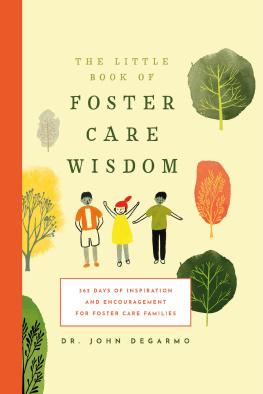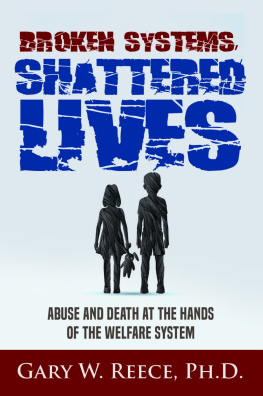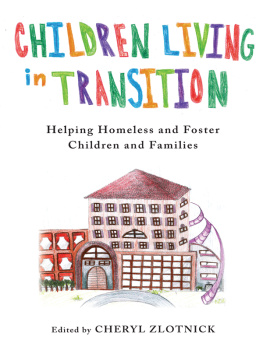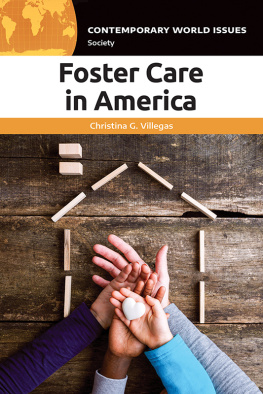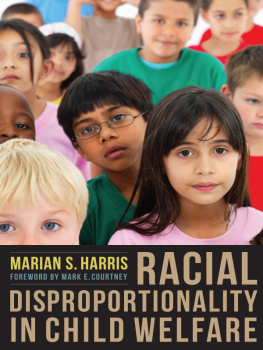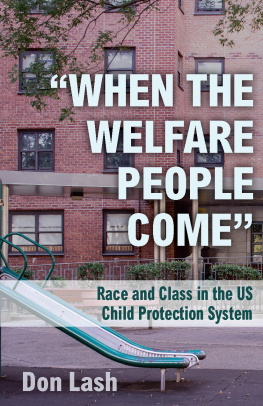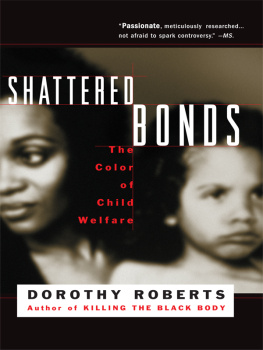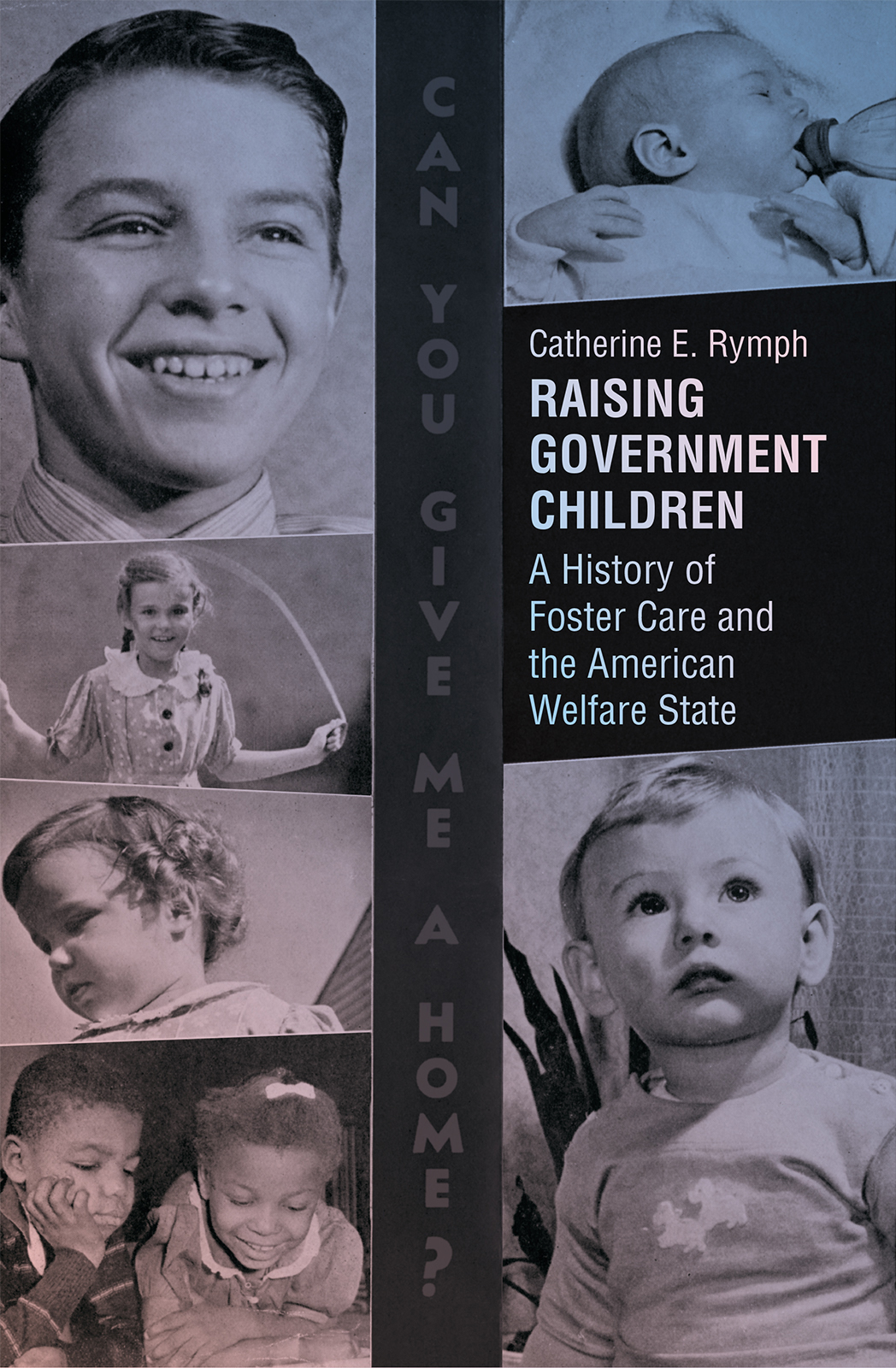ACKNOWLEDGMENTS
It is striking the number of people I know, from different parts of my life, who feel some personal connection to the subject of foster care. Three aspects of this book in particular seem to resonate deeply and broadlydefining the meaning of family, locating the line between labor and love, and assessing the way society values children. Indeed, in my many conversations about this project over the yearsbe they with friends, acquaintances, historians and other scholars, or nonacademicsscholarly discussions easily morphed into the personal, and personal conversations readily produced insights that followed me into my writing. Thus I have a lot of people to thank.
First on the list, though, are institutions. I have received funding for this project from the Social Welfare History Archives, University of Minnesota; the University of MissouriColumbia Research Council, the University of Missouri System Research Board, and the University of MissouriColumbias Department of Womens and Gender Studies. That funding has made it possible for me to do my research, which involved, above all, traveling to archives. The work of historians would not be possible without archives and archivists. I am grateful for staff at the Library of Congress, the Butler Rare Book and Manuscript Room of Columbia University, the National Archives, and the Social Welfare History Archives at the University of Minnesota, especially Dave Klaassen. Anyone who works on the subject of child welfare passes through this archive at some point, and if they did so before Daves retirement, they benefited from his copious knowledge of the SWHAs holdings and of the field of child welfare history and from his engaging conversation. Thanks also are due Sally Kenney and Norman Foster, who kindly provided me with a place to stay while in Minneapolis. Most of the archives I worked at are public institutions, and thus I want to acknowledge the taxpayers who enable these fine organizations to collect and preserve our past and make documents available to researchers like me. They are a precious resource.
Chuck Grench, Jad Adkins, and the staff at the University of North Carolina Press believed in this project and shepherded it expertly through the final stages of publication. Two extraordinary historians, Ellen Herman and Eileen Boris, have supported this project for many years. They have written me letters of recommendation, commented on conference papers, and read the manuscript in its entirety. Thank you only scratches the surface. Scott Southwick, of course, is always my first editor and has watched every part of this story unfold. I wish that I wrote with half of his wit, elegance, and craft, but he is always generous and gracious in his criticism. I am very lucky to have him.
Over the years, I have had the opportunity to present parts of this project at a number of conferences and have benefited from the wise comments of Wayne Carp, Sara Feldman, Colin Gordon, Isabel Heinemann, Linda Kerber, Molly Ladd-Taylor, the late Paul Longmore, and Michael Willrich. This book has also been enriched by ongoing informal conference conversations with Karen Balcom, Julie Berebitsky, Eileen Boris, Dianne Creagh, Laura Curran, Claire Halstead, Ellen Herman, Marjorie Levine-Clark, Andrew Morris, Kim Nielsen, Ethan Sribnick, Emilie Stoltzfus, Sandy Suffian, and Teresa Toguchi Swartz.
I continue to be sustained, both intellectually and personally, by friendships that first began in graduate school at the University of Iowa. In particular, I thank Sierra Bruckner, Charles Hawley, Marjorie Levine-Clark, Kim Nielsen, and Amy Petersen. Although I doubt he even remembers anymore, it was Chris Gerteis who first encouraged me to pursue a project on foster care, years ago now. I completed many of the final revisions for this project while staying with Sierra Bruckner and Rudi Kruter. Indeed, I only wish I could do more of my writing at their breakfast table in Moabit. Thank you also to Kathleen Mills, who isnt a grad school buddy but who has been a sounding board for most of my adult life.
My splendid writing group of University of Missouri colleagues has been an anchor during the completion of this book. Elizabeth Chang, Keona Ervin, Emma Lipton, and Robert Smale have been appropriately supportive and irreverent as the occasion required, even if they sometimes talked too much about youth soccer. I would be at sea without them. We come from different disciplines and different fields. What we share is a desire to finish our current book projects. I just hope they will let me stay in the group now that I have completed this one. I must also thank profusely the good folks at Caf Berlin, Kaldis Coffee, and Uprise Bakery who graciously put up with us week after week.


